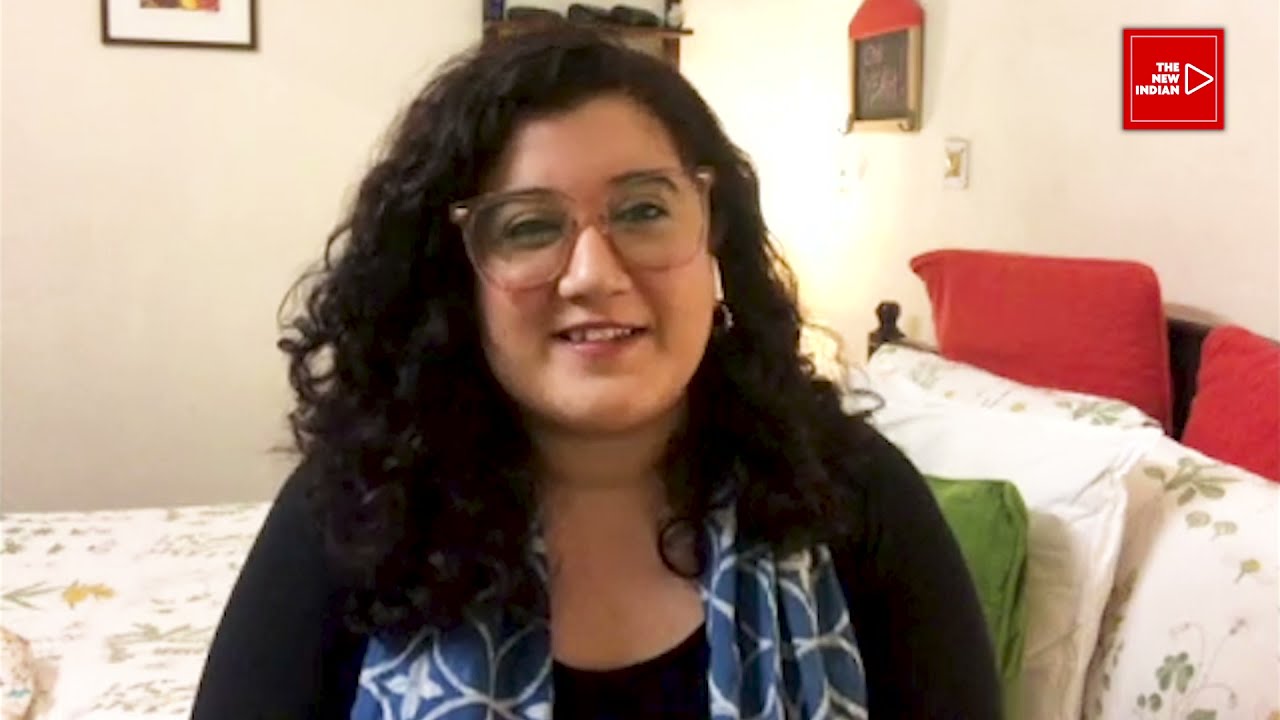NEW DELHI: There is no caller in the country who has not heard her voice. One and a half year on after she recorded the Covid19 message that was relayed as the caller tune in India, voiceover artist, Jasleen Bhalla, reflects on the impressions left behind by the message as well as the feedback that she received. Her voice is now replaced by a male voice with a different message, highlighting the vaccinations in the country.
“I get mixed reactions (from people),” she shares. “A lot of people relate to the message. They feel that it is a constant reminder that no matter how normal we think the things are, the truth is far from reality,” she said in a candid chat with The New Indian. ALSO READ & WATCH: Hello, Hello! India’s New Caller Tune Still Wants Your Safety First
In play since in the initial phase of the pandemic, the entire message was focussed on creating awareness about precautionary measures one could take as an individual to avoid contracting the virus. But, did the message change things for her?
Today’s world is a lot about interactivity. There’s so much interaction through social media. A lot of people wish to connect with me and know more about the way this medium works. I get a bunch of messages from people thanking me. This is just a tiny bit, it’s just a gentle reminder. But the real work is obviously done by the health workers, the agencies, the government officials… There is an army of people carrying the pressure on their shoulders. Everybody’s pitching in the bigger picture and this is also a part of that
From the time the world moved from isolating as a preventive measure to vaccinating and getting on with life, the scenario has changed quite a lot. Convincing people has not been easy, either, so what does she think about the entire process?
“Being a part of the messaging is one thing, but as a citizen of the country who was desperately waiting for the vaccine to be formulated, I was most relieved to be able to get my shot as commoner. Just so, I could carry on with my life as normal as possible. I’ve taken both the doses and both the processes were really smooth for me,” she shared.
In a world ridden with the fear of the unknown and false information, it is not easy to communicate to an audience as large as India. Just for them to get vaccinated and to create more awareness about the entire process of vaccination, the health agencies have been working constantly at professional as well as personal levels. “I think social media is one of the best mediums to actually stub the rumours and provide people with the right information,” Bhalla opined.
As for now, Bhalla says she is glad to be a part of the fire-fighting process, even if a miniscule part. She is happy to have been left with little stories left behind because of this gig. “It’s like everybody sort of knows what is to be done in the back of their heads but don’t really pay attention to a message that constantly plays. And then suddenly, it strikes them and the message gets ingrained even more!” she said, adding, “I get a lot of memes that are forwarded to me. So recently, somebody sent me a ‘When will the kids go to school?’ meme as part of this or that will happen. And a friend quipped: ‘The day I don’t get that caller tune on my phone any longer is the day I will know that everything has come back to normalcy.’ That said it, for me!” Also Read: FabIndia Pulls Diwali Ad After Calling It Jashn-e-Riwaaz, Shoppers On Street Divided
While we too would wish for what Bhalla’s friend said to come true. The reality is that the fight against this virus is long and strenuous. The caller tune may have changed for now, but the messaging remains the same: Take all precautions, follow the protocol and get jabbed. That is the only way we would survive.










